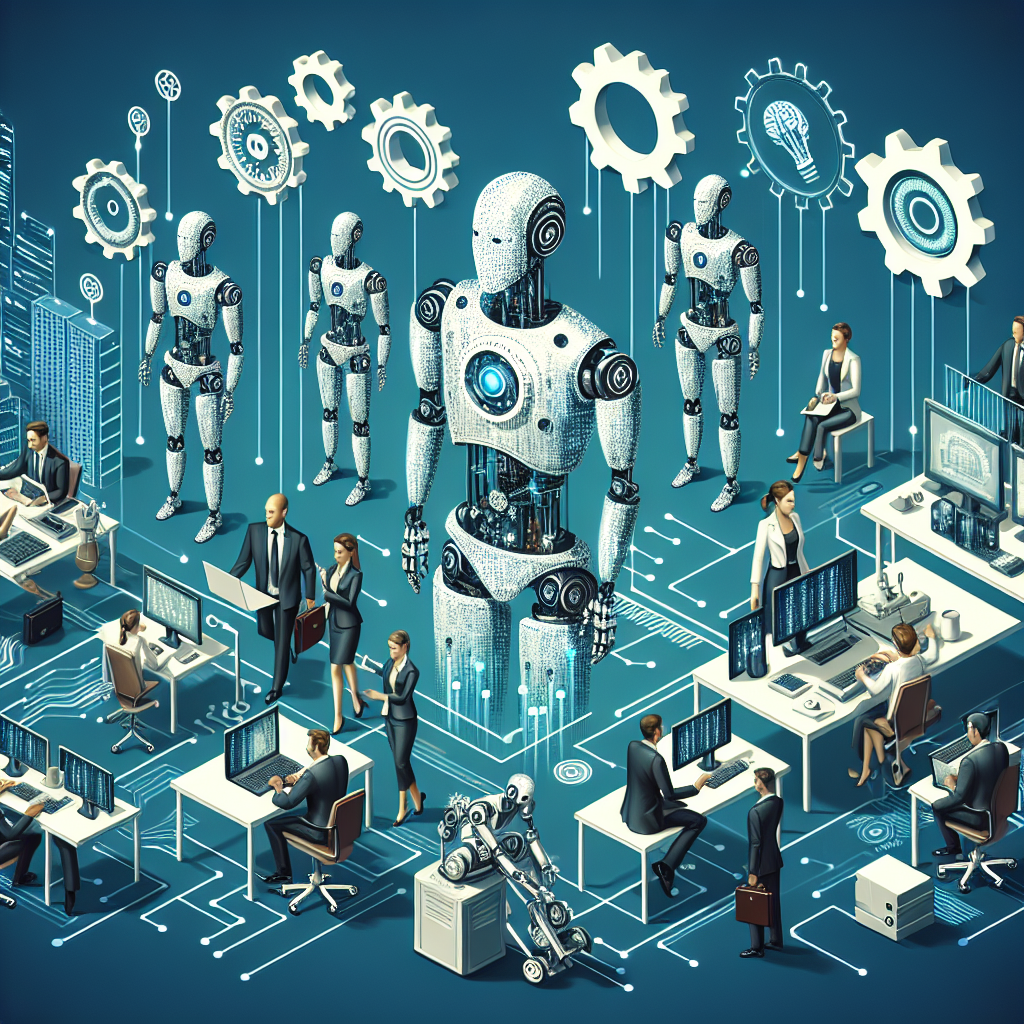Artificial General Intelligence (AGI) has been a topic of fascination and concern in recent years, as advancements in technology continue to push the boundaries of what machines are capable of. AGI refers to a type of artificial intelligence that can understand, learn, and apply information in a way that mimics human intelligence. This level of intelligence has the potential to revolutionize industries and change the way we work in profound ways.
One of the key areas where AGI is expected to have a significant impact is in the workplace. Automation has already transformed many industries, but the introduction of AGI could take this to a whole new level. As machines become more intelligent and capable of performing a wider range of tasks, the nature of work and the types of jobs available could change dramatically. In this article, we will explore how AGI could impact jobs and industries in the future, as well as some of the potential benefits and challenges that come with this technology.
How AGI Could Impact Jobs and Industries
1. Increased Efficiency and Productivity
One of the main benefits of AGI in the workplace is the potential for increased efficiency and productivity. Machines with AGI capabilities can perform tasks faster and more accurately than humans, leading to faster production times and higher output. This could help companies save time and money, as well as improve the quality of their products and services.
2. Job Displacement
While increased efficiency and productivity can be beneficial for businesses, they can also lead to job displacement for human workers. As machines become more capable of performing a wider range of tasks, some jobs may become obsolete or redundant. This could result in job losses for certain sectors, particularly those that rely heavily on manual labor or repetitive tasks.
3. New Job Opportunities
On the other hand, the introduction of AGI could also create new job opportunities in industries that require highly skilled workers to operate and maintain these machines. As AGI becomes more widespread, there will be a growing demand for workers with the technical skills and knowledge to work alongside intelligent machines. This could lead to the creation of new jobs in fields such as robotics, data science, and machine learning.
4. Changes in Workforce Dynamics
The introduction of AGI in the workplace could also lead to changes in workforce dynamics, as companies restructure their operations to accommodate intelligent machines. This could involve retraining existing workers to work alongside AGI systems, as well as hiring new employees with the necessary skills to operate and maintain these technologies. Companies may also need to rethink their organizational structures and processes to fully leverage the capabilities of AGI.
5. Ethical and Legal Considerations
As AGI becomes more prevalent in the workplace, there are also ethical and legal considerations that need to be taken into account. For example, there may be concerns about the impact of automation on job security and income inequality, as well as the potential for bias and discrimination in AI systems. Companies will need to ensure that their use of AGI complies with relevant laws and regulations, and that they have mechanisms in place to address any ethical concerns that may arise.
FAQs
Q: Will AGI replace all human workers?
A: While AGI has the potential to automate a wide range of tasks, it is unlikely to replace all human workers. Many jobs require a level of creativity, emotional intelligence, and critical thinking that machines are not capable of replicating. Instead, AGI is more likely to complement human workers by taking on repetitive or mundane tasks, allowing them to focus on more complex and strategic work.
Q: How can companies prepare for the introduction of AGI in the workplace?
A: Companies can prepare for the introduction of AGI by investing in training and upskilling programs for their employees, as well as developing strategies for integrating intelligent machines into their operations. They should also consider the potential impact of AGI on their workforce and business model, and plan accordingly to ensure a smooth transition.
Q: What are some of the potential risks of AGI in the workplace?
A: Some of the potential risks of AGI in the workplace include job displacement, income inequality, and ethical concerns. Companies will need to carefully consider these risks and take steps to mitigate them, such as investing in retraining programs for displaced workers and implementing ethical guidelines for the use of AI systems.
In conclusion, AGI has the potential to revolutionize the workplace and transform industries in profound ways. While there are many benefits to be gained from the introduction of intelligent machines, there are also challenges and risks that need to be addressed. Companies will need to carefully consider the impact of AGI on their workforce and business model, and develop strategies to ensure a smooth transition to this new era of automation. By doing so, they can harness the power of AGI to drive innovation, increase efficiency, and create new opportunities for growth.

